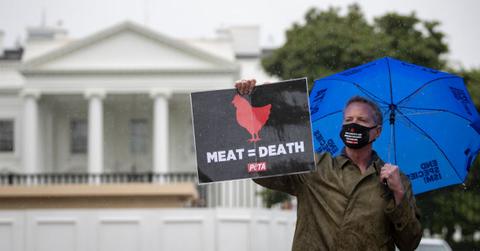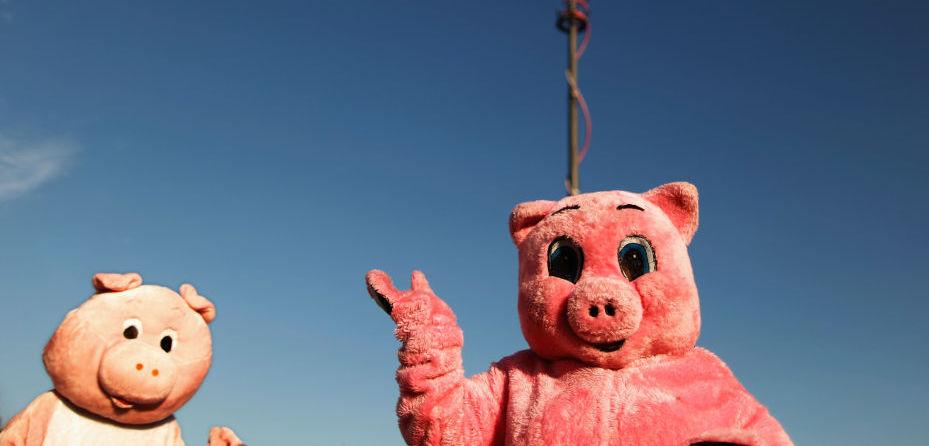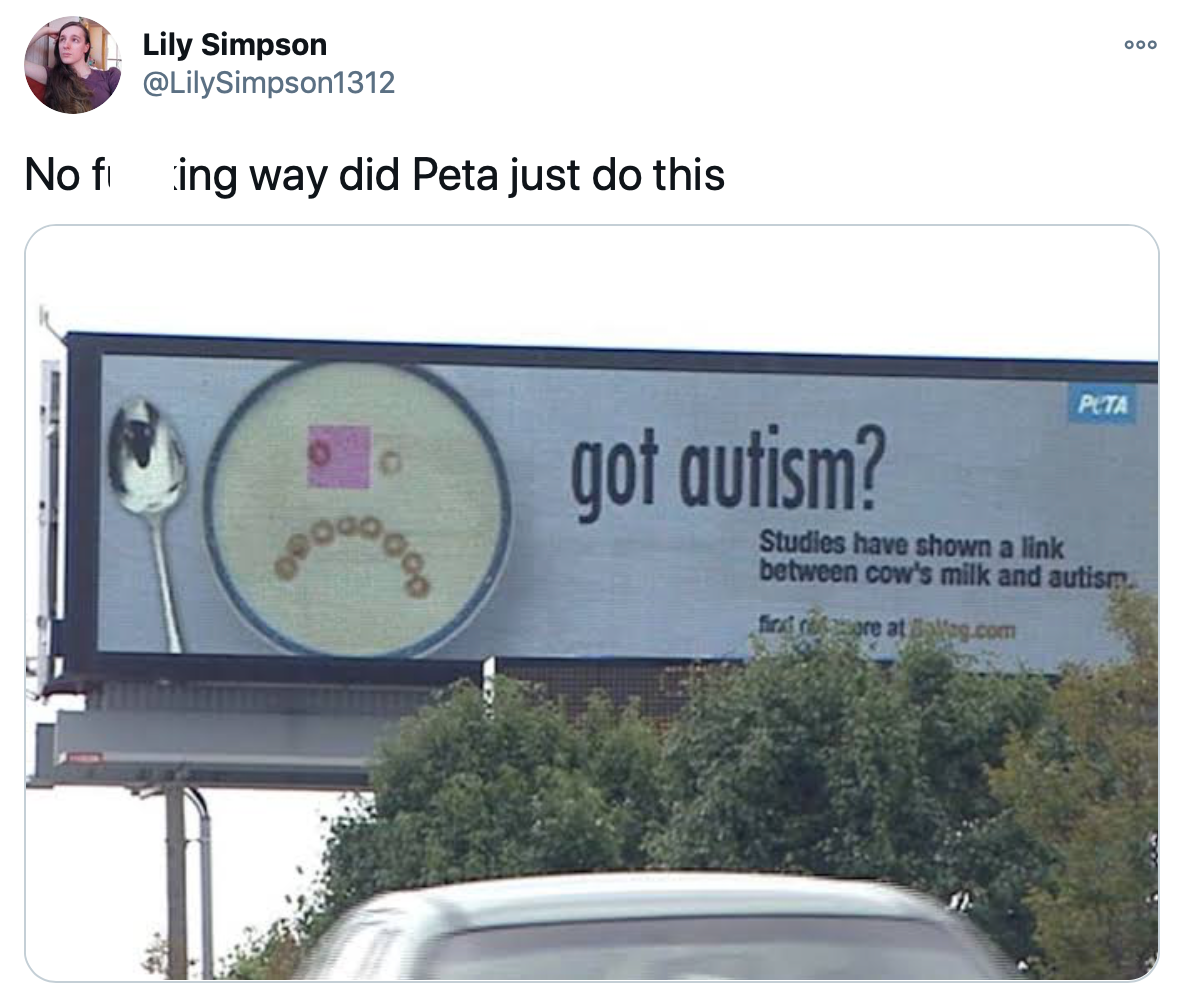Remember the Time PETA Put out Those "Got Autism?" Billboards?
Published Jan. 5 2021, 6:39 p.m. ET

Between anti-vaxxers, 5G conspiracists, and flat-earthers, the internet is a place rife with bogus claims about almost anything. Countless online commentators suddenly become “experts” when the topic turns to something that they feel passionate about, despite a stunning lack of evidence to back up their claims.
A controversial old PETA (People for the Ethical Treatment of Animals) ad recently resurfaced on social media, wherein the organization claims there is a link between consuming dairy products and developing autism. Naturally, people were quick to point out the myriad of problems with this ad, but many are also wondering just how PETA could be so tone-deaf.
Keep scrolling for a brief explainer of the terrible “got autism?” PETA billboard and its origin story.
Here's the origin of the viral “got autism?” PETA billboard.
More than a decade after its initial launch in 2008, an old PETA advertisement has resurfaced on social media and is causing a lot of outrage. The ad, which first appeared as a billboard in New Jersey, features a bowl of cereal forming a frowny face accompanied by the words “got autism?”
Under the slogan is a tagline that says, “Studies have shown a link between cow’s milk and autism.”
Aside from the fact that studies have not shown a correlation between consuming dairy and developing autism, the messaging of the ad also negatively portrays people with autism.
This isn’t the first time that the ad has caused a controversy, and it’s not even the first time that it’s resurfaced since it was originally revealed.
When the billboard was released in 2008, it sparked outrage among activists of the autistic community, medical professionals, and parents.
Not only did people object to the offensive play on the popular '90s “got milk?” ad campaign, but it was also purporting a discredited study. Eventually, the Autistic Self Advocacy Network (ASAN) fought and won to have the billboard taken down and the organization was forced to stop the campaign.

However, while the “got autism?” campaign was no longer officially running, PETA’s website continued to feature an article supporting the claim that there is a link between dairy and autism. The article exists to this day.
In 2014, the ad resurfaced again among science writers on Twitter, who were rightly put off by the “scientifically unsupported … fear mongering.” Once again, PETA’s controversial message instigated a flurry of online articles discrediting the organization's dubious claims.
The next time the ad came into public discourse was nearly a decade after it was first launched.
In 2017, an autistic British food writer named Jack Monroe tweeted at PETA, “can you please remove my recipes from your website with immediate effect coz I wrote them with my autism. Thanks.”
Less than a day after Jack posted his message, PETA removed all of his recipes from their website, but they continued to feature the article and did not comment on the problematic message of their campaign.

In 2019, the campaign resurfaced once again, and this time the National Dairy Council of Britain stepped in to rubbish the claims. A spokesperson for the council emphasized that PETA’s claims were based on “two studies, a 1995 study by the University of Rome and a 2002 study that only looked at 20 children. Both studies are over ten years old and the conclusions have not held up in a recent scientific research review on this topic.”
Finally, on Jan. 4, 2021, the campaign came to the public’s attention once again after Twitter user Lily Simpson reposted the ad. While people in the comments noted that the ad was years old, they did acknowledge that the article is still on PETA’s website, still promoting scientifically unproven theories.
